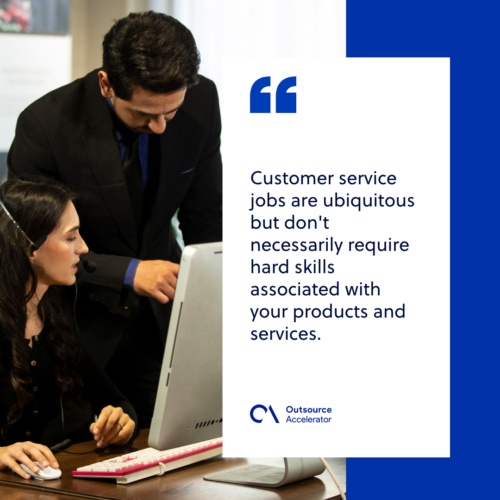Customer support and customer service differences

Most people use the terms “customer service” and “customer support” interchangeably. Indeed, they sound pretty much like they’re the same thing. However, when you take a closer look at customer support vs. customer service, you find that they’re two different things, and mixing them together can hurt your business.
Customer support vs. customer service
Customer support and customer service are both quite significant, but what you do depends heavily on your business type. Every company with customers does customer service, but customer support is more often limited to tech companies.
What is customer support?
Customer support requires various skills that are necessary to help customers with technical problems. Customer support representatives have detailed knowledge and understanding of your company’s products and services so they can help customers with planning, execution, troubleshooting, and product feedback.
For example, your company produces and sells in-home wi-fi routers. A customer calls because their router suddenly started running very slowly, they don’t know why, and they’ve tried everything they can think of.
They’ll call your customer support team because those are the people who can walk them through additional troubleshooting measures based on their understanding of what might work and what won’t.
Customer support representatives also know how to diagnose a problem via deduction, i.e., if a troubleshooting method fails, that may tell them what the problem is.

Overlap with customer service
Customer support reps need to have the same soft skills as anyone in customer service. Because they’re primarily dealing with irritated and upset customers, they need to have the same soft skills customer service personnel have in addition to their hard skills.
What is customer service?
Simply put, customer service is providing the best value possible to your customers to ensure they get the most out of your product or service. To provide customer service, you proactively interact with your customers from start to finish.
For instance, let’s say an upset customer calls you because they ordered your product and it showed up defective. Customer service is talking with the customer about return and exchange policies and helping them navigate those policies.
If your policy involves a 30-day, money-back guarantee, you would walk the customer through how to send the product back and explain when they can expect their replacement or refund. You would not try and help them fix it.
Customer service is a large part of the entire customer experience and can even make or break your customers’ experiences. It’s important to invest resources in a trusted customer service provider like SixEleven BPO to ensure customer satisfaction.
The use of soft skills
Customer service primarily involves what are known as “soft skills,” which fall under the categories of social cues, personality traits, and communication skills. Some of those specific skills are:
- Communication
- Listening
- Self Control
- Conflict resolution
- Assertiveness
- Accountability
- Empathy
- Positive Attitude
Those in customer service need these skills and more to handle the company’s customers to deliver a positive experience to keep them coming back.
Customer service jobs
Everyone who works with your customers is, in essence, performing customer service. Cashiers, desk clerks, call-center representatives, and even some management positions are all customer service positions.
Ideally, they’ll understand your company and its products, services, and policies well enough to be able to answer questions, help customers find something or place an order, and resolve complaints. Customer service jobs are ubiquitous but don’t necessarily require hard skills associated with your products and services.

Understanding customer support vs. customer service affects your bottom line
It may seem evident that customer support and service affect your bottom line. However, what’s not always apparent is that treating them as though they’re the same can hurt your bottom line.
You’ve heard people gripe about their wireless provider’s customer service and support. You’ve probably even complained about your own, like how their support representatives don’t seem to know what they’re doing and how many supervisors you had to ask for before you got to someone who actually had a clue what they were talking about.
Maybe your wireless company treats customer service the same as customer support, which leads to those problems.
When customers have bad experiences, then unless they have no choice but to stay with you, they’ll go someplace else. These days, with customers’ ability to post about bad experiences on social media, negative posts and comments can be enough to kill your brand.
The difference between customer support and customer service
Many people believe customer service and customer support are the same things, and when business owners believe that, their business can suffer. If you need customer support, ensure they’re well-trained and that your company policies allow for satisfactory problem resolution as much as possible.
Your customer service representatives are every person that works with your customers, from the time they purchase your product or service to the time their interaction with you is complete. It’s a much larger field and a much larger part of your company than your customer support team.







 Independent
Independent




